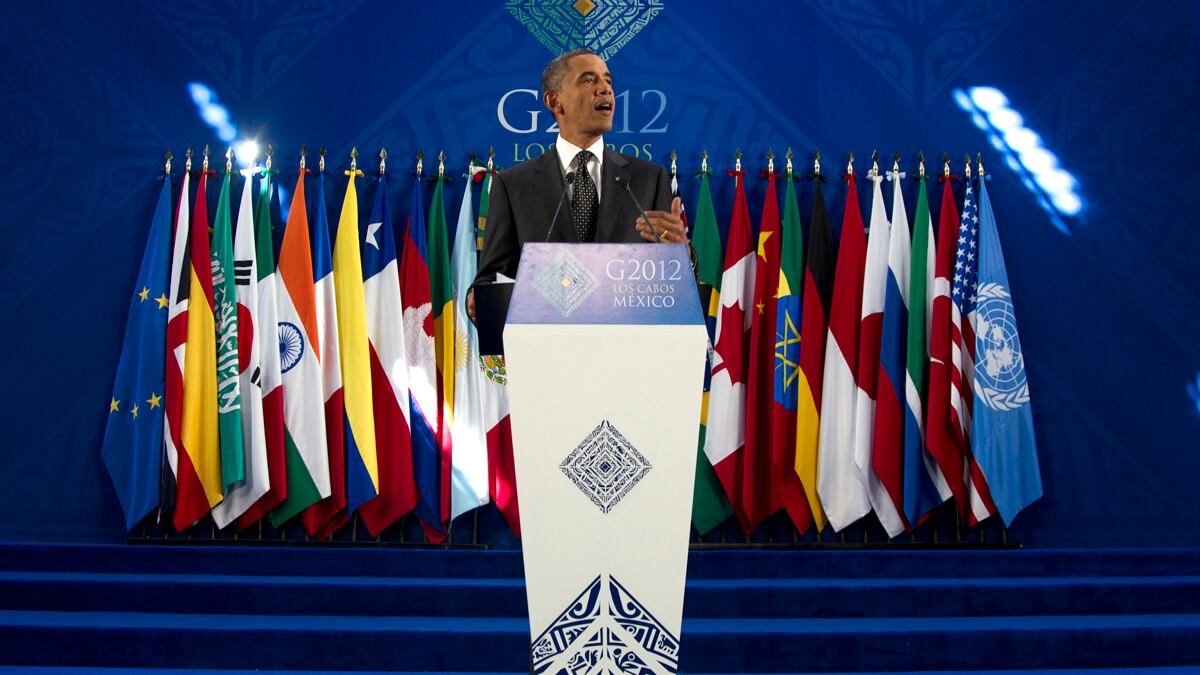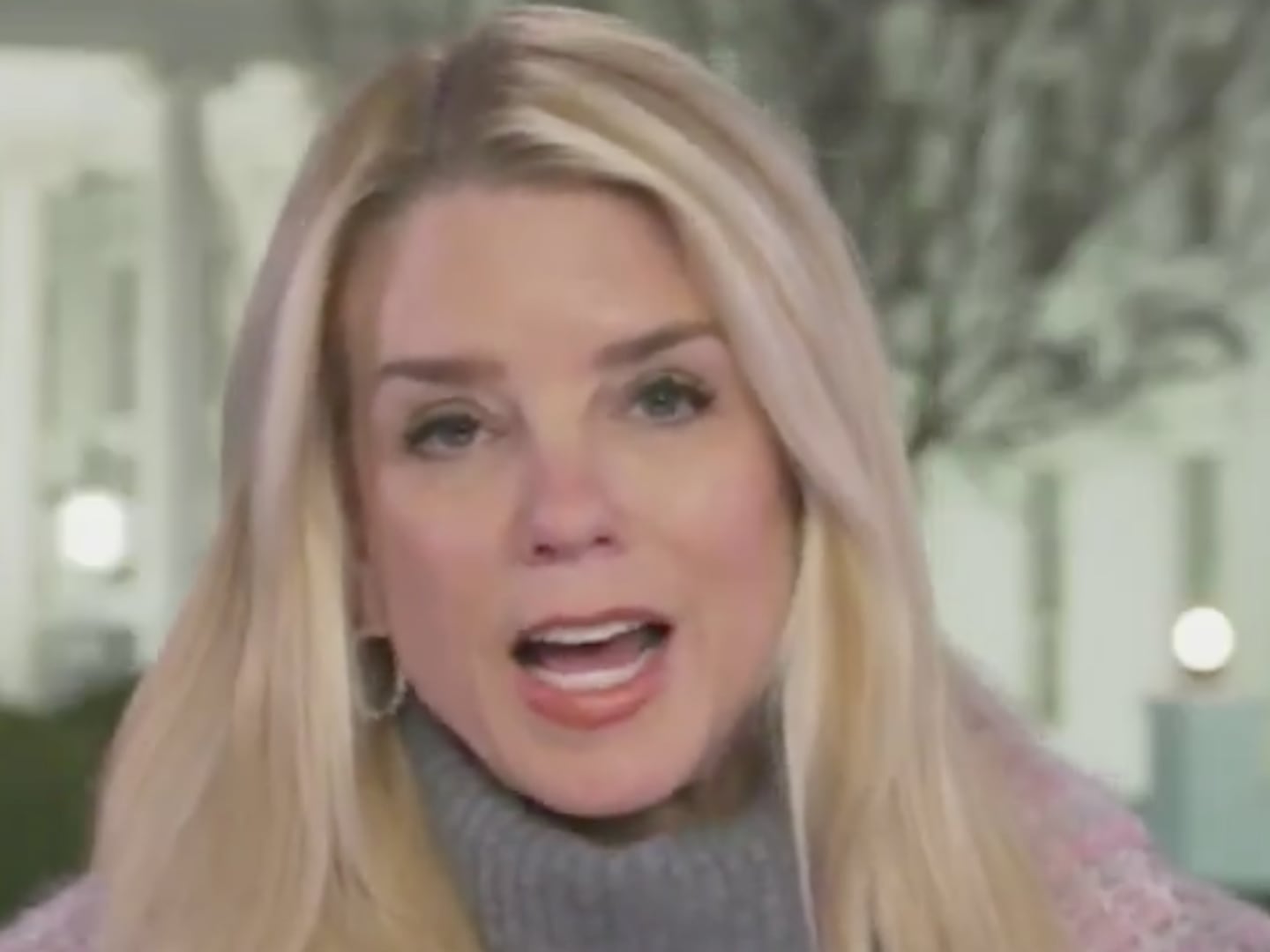The most important lesson learned from the G-20 Summit in Los Cabos is that for the heads of state of the largest economies of the world, banks are more important than people.
The final declaration gives lip service to unemployment, poverty, and corruption, but the real work at the meeting was about how to save European banks and financiers. International financial stability is clearly a condition for economic prosperity, but the common people should not be forced to pay for the irresponsible behavior of the wealthy. Nor should the poorer countries be browbeaten into bailing out the rich ones.
Mexico, as the first country from the “developing world” to preside over the G-20 and host a summit, failed to use its leverage to push the organization away from short-term fixes and toward long-term solutions. Mexico´s President Felipe Calderón was more interested in using the meeting politically at home to boost his party's chances at the polls in the July 1st presidential elections, than in pushing for a new international agenda.
Calderón also used the meeting to garner personal support and international notoriety. He sees this as his best insurance policy against eventually being held responsible in international tribunals for the humanitarian crisis caused by the “drug war” that has taken over 60,000 lives during his administration.

As a result, Mexico and other developing countries have been stuck with the short end of the stick. For instance, part of the agreement hammered out in Los Cabos requires all of the G-20 members (United States, the European Union, Germany, Great Britain, France, Italy, Japan, Russia, China, Canada, Argentina, South Korea, South Africa, Mexico, Brazil, India, Indonesia, Saudi Arabia, Turkey and Australia) to increase their funding to the International Monetary Fund in order to help protect against a European meltdown.
Mexico is already ahead of the game in this regard, since this past April, Congress approved Calderón´s proposal to almost triple Mexico´s contribution to the IMF from $5.7 billion in 2011 to $14 billion in 2012. Robin Hood has been turned upside down. Instead of the poorer countries receiving support from the wealthier ones, countries like Mexico will now be financing European banks.
President Obama was also glaringly shortsighted in Los Cabos. He did not spearhead an international humanitarian initiative worthy of a Nobel Peace Laureate or promote a broad vision for solving the structural problem of unregulated international financial flows. Instead, Obama spent his time lobbying European leaders in a desperate attempt to prevent the economic crisis from spreading to the U.S. before the November presidential elections. Like Calderón, Obama apparently gives higher priority to his personal future than to the long-run sustainability of the global economy.
The G20 meetings also were the last time Obama and Calderón will meet as heads of state, since Mexican presidents are prohibited from reelection. But the U.S.-Mexico bilateral agenda was left on the sidelines, as Obama and Calderón once again preferred niceties over effectiveness. “I would like to begin by saying how much I value Felipe’s friendship and the progress we have made together over the last several years,” pronounced the U.S. president in his G-20 closing address. “The deep ties between our countries will only grow stronger in the years to come.”
But Mexico and the United States need to transform instead of simply “deepen” their relationship. The central problem is not the inevitable intensity or profundity of the cross-border exchange, with hundreds of thousands of people, goods and money daily flowing back and forth across the Rio Grande. The important challenge is to correct for the unbalanced and unfair nature of this exchange. Specifically, Mexicans put out a disproportionate amount of the dead and the sweat and get very little in exchange.
Obama recently has made some steps in the right direction. For instance, his recent decision to stop deporting young “DREAMers”—immigrants under 30 who came to the country as children, are enrolled in school and have a clean record—will significantly help Mexican families integrate into the U.S. melting pot. This move may also help Obama receive some important electoral support among the Hispanic population. Nevertheless, this executive decision does not make up for his failure to invest sufficient political capital to get the DREAM Act actually passed in Congress during the first three years of his administration.
Similarly, Obama has strengthened the oversight by the Bureau of Alcohol, Tobacco, Firearms and Explosives (ATF) of illegal sales of assault weapons to Mexican drug cartels through new reporting requirements. But such a move is not sufficient to stop U.S. arms dealers from making enormous profits off the bloodbath south of the border. This is especially the case when the U.S. government has refused to permit a full congressional investigation of the Fast and Furious case, in which the Justice Department apparently permitted hundreds of illegal guns to “walk” to Mexico. If Obama really wanted to improve ties with Mexico and cut into the arsenal of the drug lords, he would gather the political will necessary to reinstall the Clinton-era assault weapons ban.
The good news for the world leaders is that the perennial anti-G-20 protesters were not allowed to get even within shouting distance of the meetings. Almost 5,000 police were deployed to prevent Obama, Calderón and the other heads of state from being forced to listen to alternative points of view. But such a false silence cannot solve the deeper structural problems with the international economy that need urgent attention. It is time for the world’s leaders to go beyond politicking and develop long-term solutions before it is too late.






